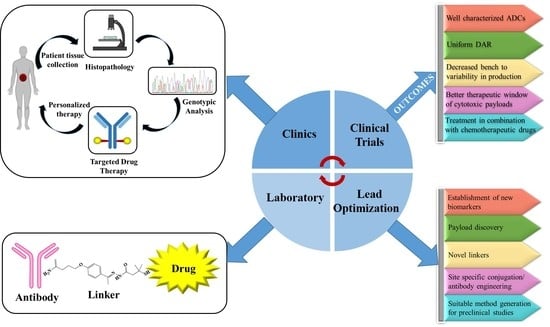Antibody-Drug Conjugates for Cancer Therapy: Chemistry to Clinical Implications
Abstract
Share and Cite
Dan, N.; Setua, S.; Kashyap, V.K.; Khan, S.; Jaggi, M.; Yallapu, M.M.; Chauhan, S.C. Antibody-Drug Conjugates for Cancer Therapy: Chemistry to Clinical Implications. Pharmaceuticals 2018, 11, 32. https://doi.org/10.3390/ph11020032
Dan N, Setua S, Kashyap VK, Khan S, Jaggi M, Yallapu MM, Chauhan SC. Antibody-Drug Conjugates for Cancer Therapy: Chemistry to Clinical Implications. Pharmaceuticals. 2018; 11(2):32. https://doi.org/10.3390/ph11020032
Chicago/Turabian StyleDan, Nirnoy, Saini Setua, Vivek K. Kashyap, Sheema Khan, Meena Jaggi, Murali M. Yallapu, and Subhash C. Chauhan. 2018. "Antibody-Drug Conjugates for Cancer Therapy: Chemistry to Clinical Implications" Pharmaceuticals 11, no. 2: 32. https://doi.org/10.3390/ph11020032
APA StyleDan, N., Setua, S., Kashyap, V. K., Khan, S., Jaggi, M., Yallapu, M. M., & Chauhan, S. C. (2018). Antibody-Drug Conjugates for Cancer Therapy: Chemistry to Clinical Implications. Pharmaceuticals, 11(2), 32. https://doi.org/10.3390/ph11020032






